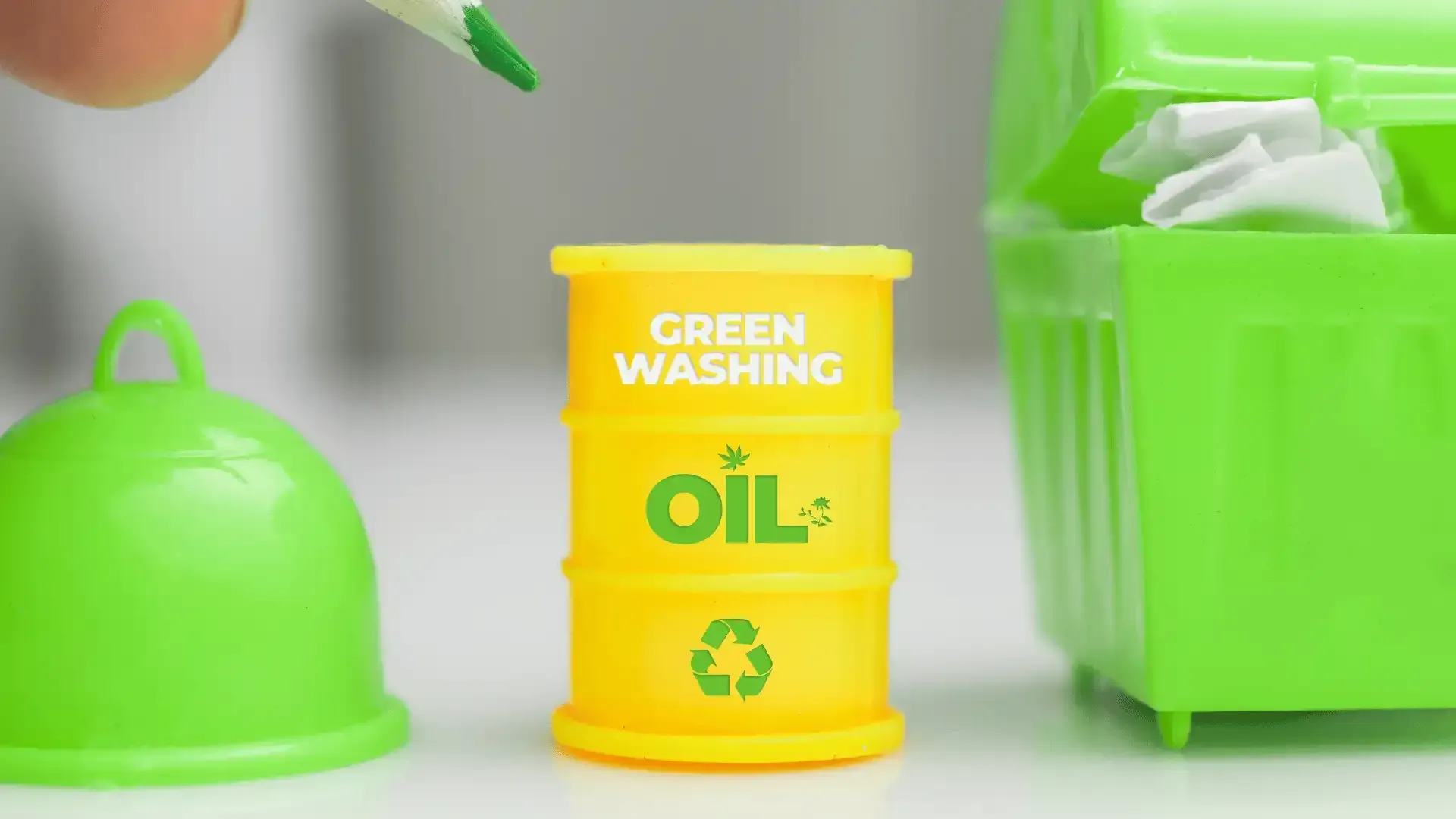The Green Wash Vs. Green Hush Dilemma in Business Sustainability
In the wake of heightened global awareness about climate change, businesses are grappling with a delicate balance between corporate sustainability commitments and public scrutiny. The complexities surrounding sustainability disclosures are not new, however, concerns about unsubstantiated or misleading climate pledges have intensified.
Instances of greenwashing have led to legal repercussions and regulatory crackdowns, underscoring the growing scrutiny surrounding corporate sustainability claims. Moreover, challenges related to the integrity of frameworks such as the Science Based Targets initiative (SBTi) have further fuelled scepticism about corporate climate action, prompting some companies to remain discreet about their environmental aspirations – helpfully termed green hushing.
What’s the difference between greenwashing and greenhushing?
Green washing involves the sharing of misleading information or unsubstantiated claims regarding a company's environmental practices or products. It typically manifests through clever marketing campaigns or superficial gestures that prioritise image over genuine sustainable process optimisation efforts. From ambiguous labels to exaggerated eco-friendly claims, green washing undermines consumer trust and dilutes the urgency of authentic sustainability actions.
On the other side of the coin, green hushing operates in the shadows of corporate silence, emerging as companies opt to keep their climate targets under wraps to avoid accusations of greenwashing. It occurs when companies downplay or conceal their sustainability initiatives, fearing potential scrutiny or reluctance to be held accountable for their environmental impact. This reluctance to disclose genuine efforts stems from various reasons, including concerns about competitiveness, resource allocation, or simply a lack of understanding about the benefits of transparency.

These terms encapsulate the complex interplay between genuine environmental commitment and strategic messaging. Both practices pose significant challenges to the integrity and progress of sustainability initiatives, especially within the context of businesses across New Zealand, Australia, and the Pacific.
Why businesses engage in greenwashing or green hushing
The motivations behind green washing and green hushing are multifaceted and often intertwined with broader organisational goals and industry pressures. For some companies, greenwashing serves as a convenient tool to capitalise on the growing demand for eco-conscious products and services without investing in genuine sustainability practices. It's a strategy aimed at enhancing brand image and market appeal while sidestepping the perceived complexities of taking positive environmentally friendly action.
Conversely, green hushing typically stems from a fear of scrutiny, perceived cost implications, or a genuine lack of confidence in the efficacy of sustainability efforts. Some businesses may hesitate to disclose their environmental initiatives due to concerns about potential backlash or scepticism from stakeholders. However, this veil of silence not only undermines transparency but also impedes collective progress towards meaningful sustainability goals.

While greenwashing and green hushing are undoubtedly detrimental to sustainability causes, they have inadvertently benefitted the cause in certain contexts:
- Increased environmental discussion: there is nothing like controversy to stoke the flames of debate, not just among employees but in boardrooms too. Discussions that focus on facts rather than feelings are powerful and effective, making environmental issues discussable and actionable.
- Industry innovation: competition among businesses to appear environmentally friendly, even if through greenwashing, can drive innovation within industries. Companies invest in carbon management services and research and development to create genuinely eco-friendly products and services to differentiate themselves from non-sustainable competitors and avoid accusations of greenwashing.
- Corporate accountability: greenwashing and green hushing controversies can hold businesses accountable for their environmental impact. Negative publicity resulting from these practices damage corporate reputations and shareholder confidence, prompting companies to reevaluate their sustainability.
- Consumer education: greenwashing scandals serve as teachable moments for consumers, highlighting the importance of critical thinking and research when evaluating environmental claims. As consumers become more discerning about greenwashing tactics, they develop a deeper understanding of genuine sustainability efforts and support businesses that prioritise transparency and authenticity.
- Increased scrutiny: the public are more aware about how businesses leverage green issues for their own interests. Consumers and regulatory bodies demand and expect businesses and organisations to genuinely improve their sustainability practices and disclosures.

The imperative of transparency: building trust and accountability
At the heart of the green washing and green hushing dilemma lies the necessity of transparency. Authentic sustainability efforts thrive in an environment of openness, accountability, and genuine commitment to environmental stewardship. By embracing transparency, businesses foster trust among consumers, investors, and stakeholders while laying the foundation for long-term sustainability.
Energy, efficiency, sustainability, and engineering consulting services play a pivotal role in guiding businesses towards transparent and impactful sustainability practices. From the initial energy audit and management, businesses gain invaluable insights into their environmental footprint and identify areas for improvement. Every business is different and benefits from sustainability consulting services to identify the areas for improvement and define sustainable solutions.
Tailored strategies, including a carbon management strategy, wastewater management, and decarbonisation services, meet the business’ needs and sustainability goals. These services, facilitated by experienced ESG consultants in New Zealand, Australia, and the Pacific, empower businesses to navigate the complexities of sustainability with precision and purpose.
Progressing towards sustainable solutions
Businesses active in the pursuit of sustainability stand to reap a multitude of economic, social, and environmental benefits. Streamlined and efficient processes not only reduce energy consumption and operational costs but also enhance overall productivity and resilience. By embracing energy efficiency services and implementing carbon reduction strategies, businesses mitigate risks associated with climate change while positioning themselves as leaders in their respective industries.
Sustainability initiatives offer a unique opportunity to bolster reputation and brand equity. In an era where consumers prioritise ethical and environmentally responsible brands, businesses that prioritise sustainability stand to gain the competitive edge and foster lasting relationships with discerning customers.
Embracing a sustainable future
By transcending the allure of green washing and the pitfalls of green hushing, businesses can pave the way for a more sustainable future—one defined by integrity, innovation, and collective action.
As sustainability consultants NZ/Australia delivering projects in Aotearoa New Zealand, Australia, and the Pacific, DETA are keen to stress collaborations help businesses make smarter energy and more sustainable business decisions to help businesses grow– no matter at what stage of the journey your business is on. Our team include energy consultants, sustainability experts, and ESG consultants, and other environmental experts who can show you how increasing profit doesn’t have to cost the earth.
If you would like to learn more about how partnering with DETA helps businesses chart a course towards meaningful environmental progress while reaping the economic and social rewards of sustainability leadership, click here to organise a free no obligation chat. Together, we forge a brighter, more sustainable future for generations to come.





